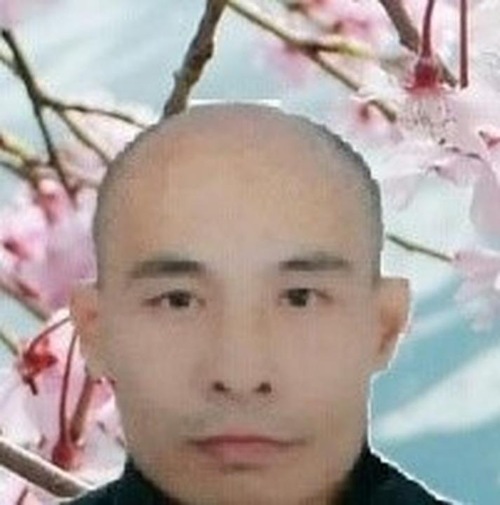(Minghui.org) Mr. Zhang Zhishui fell from a five-story building and died while trying to escape from police in Qinhuangdao City on November 18. Circumstantial details are unknown at this time.
The 42-year-old resident of Cangzhou City, Hebei Province had been released only two years ago after spending 11 years in prison for practicing Falun Gong, a meditation practice that has been persecuted by the Chinese communist regime since 1999.
During his incarceration, Mr. Zhang was severely tortured for refusing to give up his belief in Falun Gong. In June of this year, he filed a criminal complaint against Jiang Zemin, holding the former head of the Chinese Communist Party responsible for his 11-year imprisonment and preceding 3-year term in a forced labor camp.
In August, Mr. Zhang's complaint was sent back to the local police department, which soon launched a manhunt for him. The officers also threatened his family to turn him in.
After months of searching, the police found out that Mr. Zhang would be visiting a friend in Qinhuangdao City (about 250 miles from his hometown) on November 18. They followed him there, and Mr. Zhang fell to his death while trying to avoid another arrest.
Prior Persecution
Mr. Zhang was given three years of forced labor shortly after the persecution began in 1999. While held at Baoding Forced Labor Camp, he was subjected to the “death bed” torture.
His arms and legs were stretched out in the air and tied to four posts of a bed frame; only his head and upper body were supported by a piece of hard board. Every part of his body was tied up with nylon strings so that he could not move. A strong light was shone into his eyes, while speakers blared loud noises. A person came in every five minutes to bang on the bed frame to prevent him from falling asleep.
Not long after his release from the labor camp, Mr. Zhang was arrested again in the winter of 2002. He was sentenced to 11 years in Shijiazhuang Prison. In order to coerce him to give up his belief in Falun Gong, prison guards instigated another inmate to beat him. He was severely beaten and almost choked to death.
After a prolong period of sleep deprivation and physical torture, Mr. Zhang had a mental breakdown. He cut himself everywhere with broken glass and was rushed to the hospital. The incident left him with dozens of deep scars on his body.
After he was released from the hospital, Mr. Zhang went on a hunger strike for a month to protest his abuse. The guards force-fed him with corn meal paste, which made him sick to his stomach and extremely thirsty. A prison doctor told Mr. Zhang privately that the guards had added excessive amounts of salt in the paste.
One evening, a guard tried to force Mr. Zhang to write a repentance statement by stepping on his shackles and rolling it back and forth so that it cut into Mr. Zhang's flesh.
Unable to bear the pain, Mr. Zhang used the sharp edges of his handcuffs to hit his own head. Wounds on his head bled profusely, yet no medical care was given. The guards simply handcuffed him behind his back for three days and nights.
When Mr. Zhang eventually returned home in 2013, he had lost all of his hair. He had no place to live because his house in the village had fallen down from lack of maintenance. He moved from place to place, only to lose his life in the police chase two years later.
Background
In 1999, Jiang Zemin, as head of the Chinese Communist Party, overrode other Politburo standing committee members and launched the violent suppression of Falun Gong.
The persecution has led to the deaths of many Falun Gong practitioners in the past 16 years. More have been tortured for their belief and even killed for their organs. Jiang Zemin is directly responsible for the inception and continuation of the brutal persecution.
Under his personal direction, the Chinese Communist Party established an extralegal security organ, the “610 Office,” on June 10, 1999. The organization overrides police forces and the judicial system in carrying out Jiang's directive regarding Falun Gong: to ruin their reputations, cut off their financial resources, and destroy them physically.
Chinese law allows for citizens to be plaintiffs in criminal cases, and many practitioners are now exercising that right to file criminal complaints against the former dictator.
All content published on this website is copyrighted by Minghui.org. Minghui will produce compilations of its online content regularly and on special occasions.










